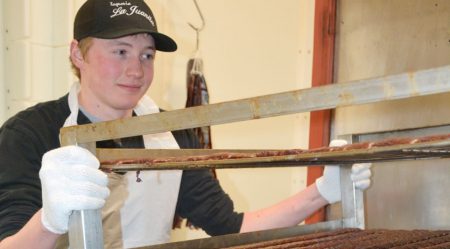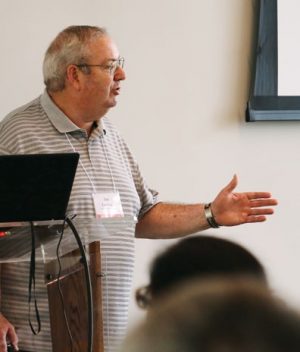Joe Cordray put it simply when asked to explain the impact of new inspection rules that went into place for small Iowa meat processors this spring.

“It’s really a pretty big deal,” said Cordray, a longtime meat science professor at Iowa State University. “The smaller plants, they’re essentially located in rural Iowa. And a lot of our rural Iowa towns could use a little revitalization.”
In May, Iowa became only the seventh state to get USDA approval for a Cooperative Inspection Shipment (CIS) agreement. The arrangements allow food regulators in Indiana, Maine, Missouri, North Dakota, Ohio, Wisconsin, and now Iowa to inspect small meat plants using federal standards.
The change means that Iowa’s smaller plants, which are inspected solely by state officials and therefore banned from selling across state lines, soon will be able to sell meat anywhere in the country – once they are admitted to the CIS program. This change is expected to quickly open new markets for small producers and provide new flexibility in supply chains strained by COVID-19.
Iowa State economics professor Dave Swenson estimates that every $1 million in new sales by small Iowa meat processors will create more than $480,000 in additional economic impact, including the spending created by 15 new jobs.

CIRAS account manager Brenda Martin, who spent a year working with Cordray and the Iowa Meat Processors Association to help Iowa inspection officials explore potential benefits of the change, believes it will have an immediate impact.
“There’s going to be a small number who are going to jump on it right away, because they already know that the market is there,” Martin said. “These are people who can do e-commerce. They have a brand, people can order on a website, and they can ship it.”
Ty Gustafson, owner of the Story City Meat Locker, said the change also will help livestock owners who raise specialty meats and currently are forced to take it out of state for processing.
“This will allow them to grow,” he said.
For more information, contact Brenda Martin at bkmartin@iastate.edu or 515-570-5282.
A version of this article was published in the Summer 2020 edition of CIRAS News. To read more of that edition or others, please explore elsewhere on our website.